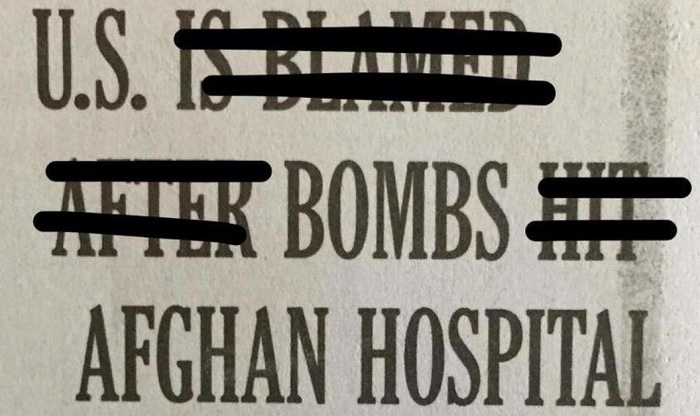The Life Of The
Dharma-Kerouac-A Biography By Ann Charters
From The Pen Of Frank
Jackman
Kerouac: A Biography,
Ann Charters, Straight Arrow Books, 1973
It is probably hard for today’s youthful generation (the so-called millennials) to grasp how important the jail break-out of the 1960s, of breaking free from old time Cold War red scare golden age of American working class prosperity dreams, for those who made the leap, of creating our own sense of space was to my generation, my generation of ’68 (so-called, so-called by me because of the tumultuous and decisive events of that years in America, Vietnam and Europe if not elsewhere and also because that year marked something of a high water mark for the times and things slowly ebbed from there).
That “generation of ’68” designation further delineated by the hard fact that that seminal year of 1968, a year when the Tet offensive by the Viet Cong and their allies put in shambles the lie that we (meaning the United States government) were winning that vicious bloodstained honor-less war, to the results in New Hampshire which caused Lyndon Baines Johnson, the blood-stained sitting President to run for cover down in Texas somewhere after being beaten like a gong by a quirky Irish poet-king from the Midwest named Gene McCarthy and a band of wayward troubadours from all over, mainly the seething college campuses, to the death of the post-racial society dream as advertised by the slain Doctor Martin Luther King, to the barricade days in Paris where for once and all the limits of what wayward students could do without substantial allies rom among the work-a-day world in bringing down a reactionary De Gaulle government, to the death of the search for a “newer world” as advertised by the slain Robert F. Kennedy, to the deadly war-circus of the Democratic National Convention in Chicago which put paid to any notion that any newer world would come without the spilling of rivers of blood, to the election of Richard Milhous Nixon which meant that we had seen the high side go under, that the promise of the flamboyant 1960s was veering toward an ebb tide.
But we did not “invent” the era whole, especially in the cultural, personal ethos part (that searching for the newer world part I keep harking back to), the part about skipping for a while anyway the nine to five work routine, the white house and picket fence family routine, the hold your breath nose to the grindstone routine and discovering the lure of the road and of discovering ourselves, of our capacity to wonder (a not inconsequential loss in the modern age despite our triumphs over a snarling Nature which is only now coming to haunt us). No question that elements of the generation before us, the sullen West Coast hot-rodders (you know the guys, mostly displaced Okies and Arkies with the stained tee shirts from working over a cranky gear ratio and refitting something or other all with splattered with oils,greases, and other lubricants), the perfect wave surfers (blonde to make yellow weep and pruned after a day’s wave-gliding and their teeny bikini blonde to really weep for girlfriends waiting on shore in those days just looking beautiful until surfer boy comes a bonking), the teen-alienated midnight “chicken run” rebel James Dean and wild one mad hatter Johnny Badass Marlon Brando and above all the “beats” (beat down, beat around, beat six ways to Sunday, blessed beat) helped push the can down the road, especially the “beats” who wrote to the high heavens about what they did from sex to dope to the hitchhike highway and back again, how they did it (mostly with moxie, verve and a devil-may-care attitude, and what the hell it was they were running from (Moloch, the slumming streets, Moloch’s son, the blessed cry of the hard-boiled negro streets, Patti Page the daughter of Moloch).
Now the truth of the matter is that most generation of ‘68ers only caught the tail-end of the “beat” scene, the end where mainstream culture and commerce made it into just another “bummer” like they have done with any movement that has threatened to get out of hand (going back to Walt Whitman’s time the, the pre-World War I Village bohemian life, the post-war Jazz Age and such). So most of us who were affected by the be-bop sound and feel of the “beats” got what we knew from reading about them. And above all, above even Allen Ginsberg’s seminal poem Howl which was a clarion call for rebellion, was Jack Kerouac’s On The Road which thrilled even those of our kindred who did not go out in the search the great blue-pink American West night (or went out for a few minutes before scampering back to the grind, that white picket fence house and all the rest).
Here the odd thing,
as the biography under review, Kerouac: A
Biography, the first insightful one written shortly after his death in
1969, by Ann Charters who knew Kerouac pretty well and acted as a “recorder” of
his life as well as literary associate, Kerouac except for that short burst in
the late 1940s was almost the antithesis of what we of the generation of ’68
were striving to accomplish. He was living off a left behind reputation which
as he himself noted was due to the fact that there was a ten plus year gap
between the action of the book and the publication in 1957. He was almost a
middle-aged man by then and no longer fit for hitchhike road which we
increasingly closed to him.
As is fairly well
known, or was by those who lived through the 1960s, he would eventually disown
his “step-children.” Be that as it may his role, earned or not, wanted or not,
as media-anointed “king of the beats” is worthy of investigation along with his
obvious literary merits as a member in good standing of the American literary
pantheon (many book forming a saga of his life but even if he only wrote On The Road like if Scott Fitzgerald had
only written The Great Gatsby or
Hemingway The Sun Also Rises he would
stand worthy of inclusion in the pantheon.
On the face of it a
poor working-class kid from the textile mill town of Lowell, Massachusetts,
from a staunch Roman Catholic French-Canadian heritage of those who came south for
Quebec in the North to “see if the streets of America really were paved with
gold” would seem an unlikely person to be involved in a movement that in many
ways was the opposite of what his generation, the parents of the generation of
’68 to put the matter in perspective, born in the 1920s, coming of age in the
Great Depression and slogging through World War II was searching for in the
post-World War II “golden age of America.”
Add to those factors
his being a “jock,” a star football player and trackman, a corner boy (at least
that is the feel from a read of Maggie
Cassidy), and a guy who liked to goof off and that only adds fuel to the
confusion about who and what Jack Kerouac was about. But here is the secret, the
secret thread that runs through the Charter biography, he was a mad man to
write, to write and to write about himself and his times. And had enough of an
ego to think that his writing would carry out his task of making a legend of
his own life. Yeah, a million word guy (probably much more than that and
without a word processor to keep count, to make editing easier, despite his
theory of spontaneous writing to the contrary, and to easily store his output).
So the value of this
biography is the literary thread that the author and Kerouac shared. The
material presented about his rough-hewn upbringing in down and out Lowell, the
dramatic effect that the death of his older brother Gerard at a young age had
on his psyche, his football prowess and disappointments, his coming of age
problems with girls, that Maggie problem, his going off to New York to prep
school and college, his eventual decision to “dig” the scene in the Village,
his checkered military record during the war, his inability to deal with women,
and marriage, his extreme sense of male bonding, his early and often drinking
problems and other personal anecdotes offered by a host of people who knew,
loved and hated him play second fiddle to this literary strand.
Ms. Charters does her
best work when she goes by the numbers and discusses, as she presumably had
with him in person at a point in the 1960s close enough to his early death to
be definitive estimate by and of him, his various troubles trying to be a
published paid serious writer, and to be taken seriously by the literary
establishment. The fate of On The Road
which after all is about his and Neal Cassady’s various cross-country trips,
drug and alcohol highs, partying, women grabbed in the late 1940s and not
published until 1957 is indicative of the gap between what Kerouac thought was
his due and what the finicky publishing world thought about him. Of course
after he became a best-seller, had his “fifteen minutes of fame plus fifty plus
years” getting his work published was the least of his problems.
While he was to write
some more things after he became famous there is a real sense that he ran out
of steam. And as Ms. Charter’s extended chapters on the creation of the short
novel Big Sur about his increasing
alcohol and drug problems and breakdowns highlight those problems and the
problem of fame itself got the better of him. Although no way can you consider
Jack Kerouac a one-note literary Johnny.
My suggestion to the
millennials-after you read On The Road
- is to read this something of an early definitive biography (with lots of good
notes at the end about Ms. Charter’s sources for various opinions and questions
of fact) to get a feel for what it was like to be there at the creation of the
big jail-break “beat” minute which spawned your parents, or ouch, grandparents
“hippie” minute. While other later biographies have been produced, especially
around the fiftieth anniversary of the publication of On The Road in 2007, this is the one to check out first.




















